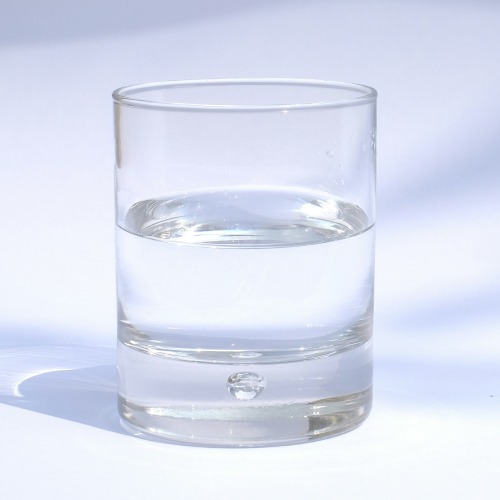Achieving glowing skin is a combination of good habits, proper skincare, and healthy lifestyle choices. Mohit Tandon from Houston suggested 10 Simple Tips to Make your Skin Glow :
1. Hydration: The Key to Radiant Skin
Proper hydration is essential for maintaining skin elasticity and preventing dryness. When your body is adequately hydrated, it helps in flushing out toxins, which can otherwise lead to dull skin. Drinking at least eight glasses of water daily is a common recommendation, but individual needs may vary based on activity levels and climate. Additionally, incorporating water-rich foods such as cucumbers, oranges, and watermelon can further enhance your hydration levels. Herbal teas and coconut water are also excellent choices that can provide hydration while offering additional nutrients. Remember, hydration doesn’t just benefit your skin; it supports overall health, aiding digestion and improving energy levels. – Mohit Tandon Houston

2. Balanced Nutrition: Eating for Your Skin
The foods you consume play a significant role in the health and appearance of your skin. A diet rich in antioxidants, vitamins, and minerals is vital for achieving a glowing complexion. Foods high in antioxidants, such as berries, dark chocolate, and green leafy vegetables, help combat oxidative stress and protect skin cells from damage. Omega-3 fatty acids, found in fatty fish like salmon and seeds like flaxseed, are crucial for maintaining skin hydration and elasticity. Vitamins A, C, and E are particularly important for skin health; for instance, vitamin C aids in collagen production and helps brighten the skin. Limiting processed foods and sugar can prevent inflammation and breakouts, making a balanced diet key to radiant skin.

3. Sun Protection: Safeguarding Your Glow
Exposure to UV rays can lead to premature aging, sunspots, and various skin conditions. Using a broad-spectrum sunscreen with at least SPF 30 daily is essential for protecting your skin from harmful rays, regardless of the weather. Sunscreen should be applied generously and reapplied every two hours, especially if you are swimming or sweating. In addition to sunscreen, wearing protective clothing such as hats and sunglasses can provide extra defense against UV exposure. Seeking shade during peak sun hours, typically between 10 AM and 4 PM, can also reduce your risk of sun damage. By prioritizing sun protection, you not only maintain your current skin health but also prevent long-term damage. – Mohit Tandon Houston

4. Consistent Skincare Routine: Building a Ritual
A consistent skincare routine is vital for maintaining and improving your skin’s appearance. Start with a gentle cleanser suitable for your skin type to remove dirt, oil, and makeup. Follow up with an exfoliant to slough off dead skin cells; this can be done once or twice a week depending on your skin’s sensitivity. Exfoliating helps to reveal fresh skin underneath and enhances product absorption. After cleansing and exfoliating, apply a moisturizer to lock in hydration. Look for products that contain ingredients like hyaluronic acid or glycerin, which are excellent for drawing moisture into the skin. A well-structured routine tailored to your skin type can significantly enhance your skin’s overall health and glow.
5. Quality Sleep: Rejuvenating Your Skin
Sleep is crucial for skin repair and regeneration. During deep sleep, your body works to repair damaged cells, produce collagen, and rejuvenate the skin. Lack of sleep can lead to dark circles, puffiness, and a dull complexion. Aim for 7-9 hours of quality sleep each night. Establishing a bedtime routine that promotes relaxation can help improve your sleep quality. Activities like reading, meditating, or taking a warm bath can signal your body that it’s time to wind down. Creating a comfortable sleep environment—dark, cool, and quiet—can also enhance sleep quality. Prioritizing rest will not only benefit your skin but your overall well-being as well.
6. Stress Management: Keeping Calm for Clear Skin
Chronic stress can take a toll on your skin, leading to issues such as acne, eczema, and premature aging. When stressed, your body releases cortisol, which can increase oil production and lead to breakouts. Incorporating stress management techniques into your daily routine can significantly improve your skin’s appearance. Activities such as yoga, meditation, and deep-breathing exercises are effective ways to reduce stress. Regular physical activity can also be a great stress reliever; whether it’s running, dancing, or a simple walk, exercise releases endorphins that enhance your mood. Finding time for hobbies and socializing with friends can further alleviate stress and contribute to a more radiant complexion.
7. Regular Exercise: Boosting Circulation for Glow
Engaging in regular physical activity is beneficial for your skin in multiple ways. Exercise increases blood circulation, which helps deliver oxygen and nutrients to skin cells while removing toxins. This increased circulation can lead to a healthier, more vibrant complexion. Aim for at least 30 minutes of moderate exercise most days of the week. Activities such as jogging, cycling, swimming, or even dancing can be both enjoyable and effective. Post-exercise, remember to cleanse your skin to remove sweat and dirt that can clog pores. Exercise not only boosts your skin’s glow but also improves overall health and well-being.
8. Avoiding Smoking and Limiting Alcohol: Protecting Your Skin
Smoking is one of the most detrimental habits for skin health. It narrows blood vessels, reducing blood flow and leading to a dull complexion and premature aging. The chemicals in cigarettes can also damage collagen and elastin, essential proteins for skin elasticity. Similarly, excessive alcohol consumption can dehydrate your skin and lead to inflammation, making it appear aged and tired. Limiting alcohol intake and avoiding smoking can have immediate and long-lasting effects on your skin. If you need support to quit smoking or reduce alcohol consumption, consider reaching out to health professionals or support groups.
9. DIY Masks and Treatments: Nourishing Your Skin Naturally
Incorporating DIY masks and treatments into your skincare routine can provide additional nourishment and hydration. Natural ingredients like honey, yogurt, avocado, and oatmeal offer various benefits, such as moisturizing, exfoliating, and soothing the skin. For example, honey is a natural humectant, drawing moisture into the skin, while yogurt contains lactic acid, which gently exfoliates. Create simple masks by combining these ingredients based on your skin’s needs. Always conduct a patch test to ensure you don’t have an adverse reaction. Using natural ingredients can enhance your skincare routine while promoting a healthy, glowing complexion.
10. Consulting a Dermatologist: Tailored Care for Optimal Results
For personalized skincare guidance, consulting a dermatologist can be invaluable. They can assess your skin type, concerns, and conditions, providing tailored recommendations and treatments. Whether you’re dealing with acne, rosacea, or pigmentation issues, a dermatologist can prescribe effective treatments that over-the-counter products might not address. Regular skin check-ups can also help monitor any changes and prevent potential issues. Investing in professional advice ensures that you’re using the right products and methods for your unique skin needs, ultimately leading to healthier, glowing skin.
Conclusion
Achieving glowing skin involves a multifaceted approach that combines proper hydration, nutrition, skincare, and lifestyle choices. By incorporating these tips into your daily routine, you can significantly improve your skin’s health and appearance. Remember that consistency is key; small, sustainable changes will yield the best long-term results. Prioritize your skin’s needs, and you’ll be on your way to a radiant complexion.
